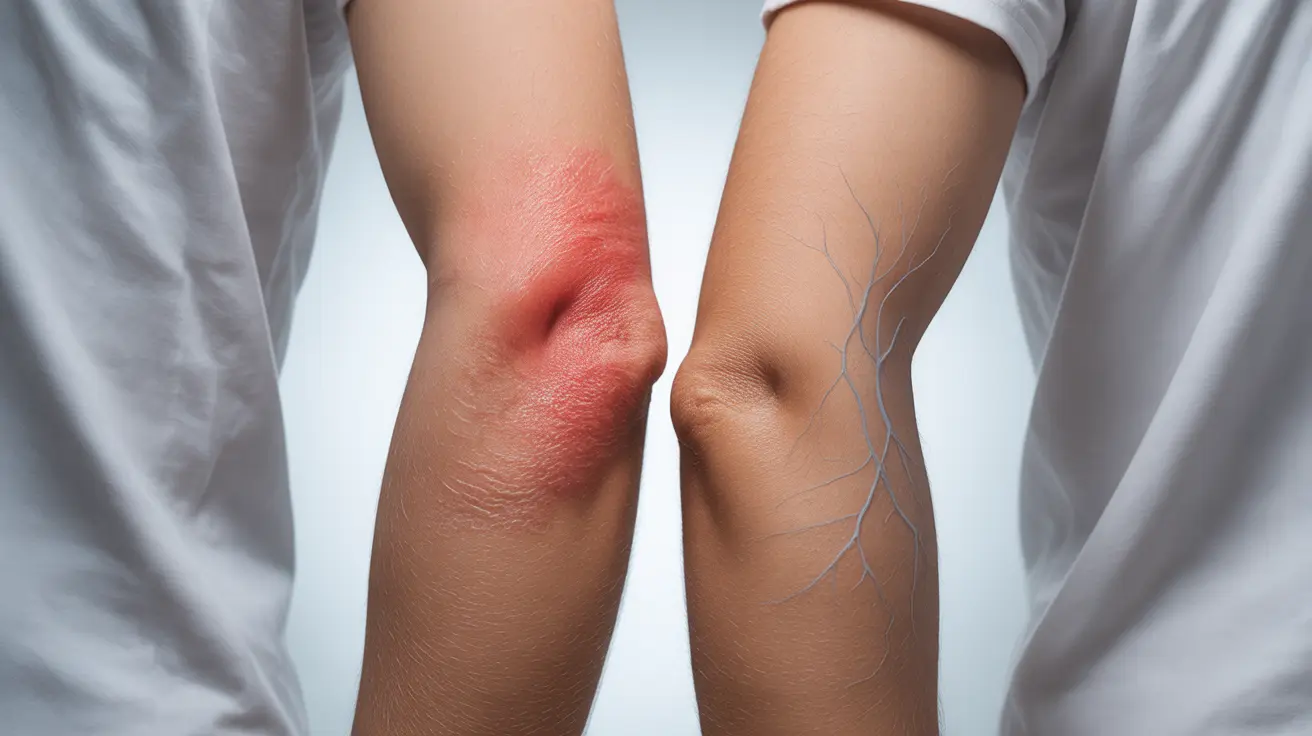Experiencing itchy arms can be both uncomfortable and concerning. This common condition can stem from various causes, ranging from simple skin irritation to more complex neurological conditions. Understanding the underlying cause is crucial for finding the right treatment and relief.
In this comprehensive guide, we'll explore the most common reasons behind itchy arms, effective treatment options, and important signs that indicate when you should consult a healthcare provider.
Common Causes of Itchy Arms
Itchy arms can result from several different conditions, each with distinct characteristics and treatment approaches:
Contact Dermatitis
Contact dermatitis occurs when your skin reacts to direct contact with an irritant or allergen. Common triggers include:
- Harsh soaps and detergents
- Jewelry containing nickel
- Certain fabrics
- Plant substances (like poison ivy)
- Chemical cleaners
This condition typically presents with redness, inflammation, and intense itching in the affected area.
Dry Skin (Xerosis)
Environmental factors, aging, and certain medical conditions can lead to dry, itchy skin on the arms. This is particularly common during winter months or in low-humidity environments.
Brachioradial Pruritus
This neurological condition causes intense itching on the outer part of the arm, typically between the elbow and shoulder. Unlike other causes, it often occurs without visible skin changes and may be related to nerve compression or sun exposure.
Diagnosis and Treatment Options
Identifying the Cause
Healthcare providers typically diagnose the cause of itchy arms through:
- Physical examination
- Medical history review
- Patch testing (for suspected allergies)
- Neurological assessment (if nerve involvement is suspected)
Treatment Approaches
Treatment varies depending on the underlying cause:
For Skin-Related Causes
- Moisturizing lotions and creams
- Topical corticosteroids
- Antihistamine medications
- Avoiding identified triggers
- Gentle, fragrance-free skincare products
For Nerve-Related Itching
- Gabapentin or other nerve-modulating medications
- Cold therapy
- UV light therapy
- Physical therapy
- Cervical spine assessment and treatment
Prevention Strategies
Taking preventive measures can help reduce the occurrence of itchy arms:
- Use gentle, hypoallergenic soaps
- Apply moisturizer regularly
- Protect arms from excessive sun exposure
- Wear protective gloves when handling potential irritants
- Maintain good skin hygiene
When to See a Doctor
Seek medical attention if you experience:
- Severe or persistent itching
- Signs of infection (redness, warmth, swelling)
- Itching that significantly impacts daily life or sleep
- Symptoms that don't improve with over-the-counter treatments
- Unexplained itching without visible skin changes
Frequently Asked Questions
What are the most common causes of itchy arms and how can I tell the difference between them?
Common causes include contact dermatitis (visible rash and inflammation), dry skin (rough, flaky texture), and brachioradial pruritus (no visible changes). Contact dermatitis typically appears shortly after exposure to an irritant, while dry skin affects larger areas and brachioradial pruritus tends to be localized to specific areas of the arm.
How is contact dermatitis on the forearms diagnosed and treated?
Diagnosis typically involves physical examination and patient history. Treatment includes identifying and avoiding triggers, using topical corticosteroids, and applying soothing moisturizers. In severe cases, oral antihistamines or prescription medications may be necessary.
What is brachioradial pruritus and how does it cause itching without visible skin changes?
Brachioradial pruritus is a neurological condition affecting the nerve pathways in the arms. It causes intense itching without visible skin changes due to nerve compression or irritation, often triggered or worsened by sun exposure.
What treatments are effective for nerve-related arm itching like brachioradial pruritus?
Effective treatments include nerve-modulating medications like gabapentin, cold therapy, UV light treatment, and addressing any underlying cervical spine issues. Some patients also find relief with topical capsaicin or local anesthetics.
When should I see a doctor for persistent or severe itching on my arms?
Consult a healthcare provider if itching persists for more than two weeks, interferes with sleep or daily activities, is accompanied by severe pain or spreading rash, or if there are signs of infection. Also seek medical attention if over-the-counter treatments aren't providing relief.




